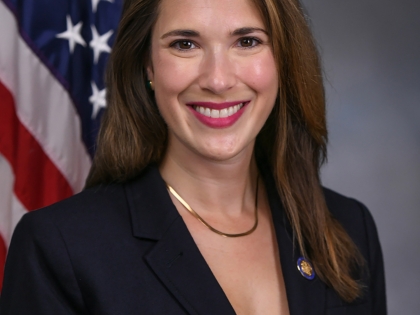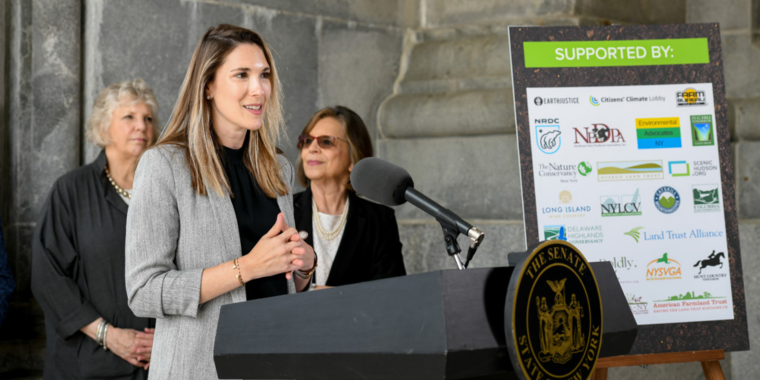
Senator Hinchey’s Soil Health and Climate Resiliency Act Passes State Senate in Big Environmental Package
June 9, 2021

ALBANY, N.Y. – The Soil Health and Climate Resiliency Act, sponsored by State Senator Michelle Hinchey (SD-46), went to the floor for a vote in the Senate on Tuesday, passing unanimously alongside a package of bills to protect New York’s natural resources. Hinchey’s bill (S.4722A), which has earned the support of a robust and diverse coalition of agricultural and environmental organizations, directs the Department of Agriculture and Markets to create a voluntary set of standards for soil health to help New York farmers adopt regenerative practices to increase farm productivity and reduce the severity of climate change. The companion bill in the Assembly, sponsored by Assemblymember Donna Lupardo (AD-123), passed in late May. The legislation now heads to the Governor’s desk for signature.
Healthy soils are beneficial for food production, flood mitigation, safeguarding water resources, and reducing harmful emissions through carbon sequestration. The bill codifies soil health and soil health practices to inform future policy and creates three programs administered by the Department of Agriculture and Markets to provide resources, offer education, and connect farmers with information on best practices to optimize climate-resilient farming and maintain healthy soil.
“New York continues to fortify its reputation as a national leader in combating climate change, and with the passage of the Soil Health and Climate Resiliency Act in both houses of the State Legislature, we are sending a strong signal that we are not only committed to achieving our climate goals but strengthening the key partnerships that will get us there,” said Senator Michelle Hinchey. “Agriculture can give us what no other industry can when it comes to mitigating the climate crisis and sustainably feeding our communities. The Soil Health and Climate Resiliency Act is designed on the very premise that we can reduce our emissions, improve water quality, and build up the resilience of our soils for the next generation if we bring New York’s soil health laws to 21st-century standards. I’m proud to sponsor this transformative legislation that will center farmers and the soils that grow our food as core components of New York’s climate strategy.”
The State Senate on Tuesday passed a suite of other environmental protections. Among them are measures to ensure that drinking water in schools is safe and free of lead contamination, ban carcinogenic chemicals from furniture and electronics, and establish extended producer responsibility standards for the carpet industry.
- Prohibiting the Use of Hazardous Chemicals: This bill, S.4630B, prohibits the intentional addition of hazardous flame retardants to upholstered furniture, mattresses, and certain electronic displays.
- Protecting Freshwater Wetlands: This bill, S.5116C, expands protections for freshwater wetlands and streamlines the wetlands permitting process.
- Expanding School Water Testing: This bill, S.2122A, will expand water testing in schools by increasing testing frequency, removing exemptions, and lowering lead levels.
- Establishing Environmental Justice for All: This bill, S.1232, declares a state policy of equal treatment in the development and enforcement of environmental laws, regulations, and policies.
- Authorizing Aquatic Invasive Species Inspection Stations: This bill, S.7010A, authorizes the Department of Environmental Conservation to establish aquatic invasive species inspection stations in the Adirondack Park and provides for owners of watercraft to self-certify that reasonable precautions have been taken to detect and remove aquatic invasive species.
- Carpet Stewardship Program: This bill, S.5027A, creates an Extended Producer Responsibility (EPR) program for carpeting. This program will establish goals for carpet recycling and phase out PFAS chemicals from new carpet production.
- Emission Tampering Act of 2021: This bill, S.6172, prohibits the disabling, removal, or interference with emission control devices and requires motor vehicle inspection stations to inspect for such devices, and requires their removal.
###
related legislation
Share this Article or Press Release
Newsroom
Go to Newsroom


